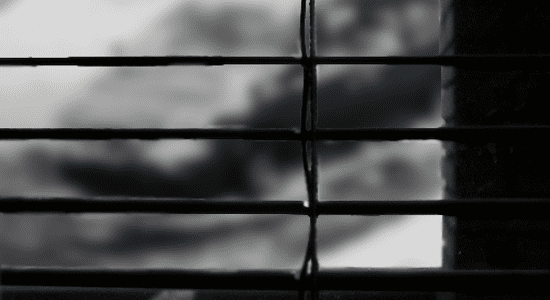When He Left

Lamarana Cooper Diallo
December 3, 2012

I remember when he left: I was watching TV—Batman and Robin—in black and white. It was 1967, Brooklyn, New York. I was sitting on the rug between the TV and the couch. My little sister, Meshach, was in my lap, and my newborn baby brother, Abednego, in his bassinet, was beside me. He must have been having a nice dream, because he was constantly smiling in his sleep. My sister had her soother in her mouth and her shiny dark eyes were plastered on Batman. Every other minute she would yell out, “look! Der! Bat-man!” Batman was too much fun for us to divide our attention to whatever our parents were doing.
“Shadrach,” my dad called from behind me.
“Yes, Daddy? ”
“I’m going to visit someone. I’ll be back tomorrow morning. It will be a long ride to get there. Take any messages for me and help your mother with your sister and brother, okay? ”
“Yeah, okay,” I said, with my eyes on the TV.
He started picking up objects around the house and putting them back down.
“What are you doing, dad? ”
“Just, um, packing . . . you know, I’m going on a little trip . . . I’ll be back though . . . only going for a day,” he answered.
I watched him pick up the picture of him and my mom, Sarah, on their wedding day. He was in an all-white suit and my mom in a white A-line dress that ended at her knees. He then traced his fingers around the border of the photo of my mom when she was three months pregnant with me. She was in a sea blue, free-flowing jersey dress. He looked at all of the first pictures of his children: Abednego, Meshach, and me. They were all taken just moments after we were born in the hospital. My eyes were wide open. My dad always said it was like my two big, almond-shaped, dark brown eyes were saying,“Here, world—here I am.”
He glanced over at me and our eyes met. He looked so confused and sad. I turned to the TV and joined my sister in watching the program, as my brother still peacefully slept.
Looking back on that day, I think it was the hardest decision my dad had ever made. I’m sure he thought he would have come back—he had to—and I’m sure he thought that, when he did, he would be able to provide for us and look at himself with pride. He probably hoped we could be as forgiving as the meanings of our names and as innocent as our hearts were. He hoped we would be able to fight and make it through the pain, like the people we were named after. My dad just hoped for a lot of things.
He took the picture of my mom and all of us at the beach on Labour Day weekend and put it in his bag.
“Okay, bye son, I love you,” he said, standing to the side of me.
“Bye dad, love you too.”
I heard his steps lead out the door. My sister, Meshach, turned and looked up at me.
“Go wock da dowr,” she said.
“Okay, I will.” I smiled, and then kissed her on the cheek.
When I walked over to do so, what I saw through the glass surprised me, so I opened the door. Our driveway was dappled with fluffy snow. The cold air swept in the house and hit my face. My eyes watered. My dad was getting into his car.
“Daddy, why do you have all those suitcases with you? You’re only going for a day.”
His face was blank for a second, then anxious, nervous, like a jumble of the wrong things. I’ll never forget his face.
“Yes . . . Yes.” He tripped over his words.
“I am just going for one night, I’m bringing all these bags because it’s stuff for other people. Go inside; you’re letting the cold air in. Remember to look after your mom, Meshach, and Abednego. Bye, son. I love you.”
His words said one thing, and his eyes said another. Somehow, seeing him get into his car that winter with all those bags, I knew he was never coming back.
